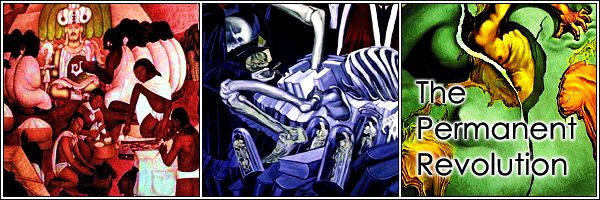Stuart Hall on Cosmopolitanism

Michael Foot: author of 'the longest suicide note in history'.
Nonetheless, whether it is Eric Hobsbawm on the history of capitalism, Benedict Anderson on the emergence of nationalism or Fred Halliday on the ‘Second’ Cold War and the Middle East, British Leftist thinkers have had much insight. So it is with Stuart Hall, born in Jamaica, co-founder of the New Left Review, professor, sociologist and cultural critic. His books – whether on the media or unsatisfactory developments in British politics – appear under obscure and intimidating titles like Representation: Cultural Representations and Signifying Practices and Encoding and Decoding in the Television Discourse. But he also has a more common touch, appearing on BBC radio and various documentaries to comment on issues of globalization and multiculturalism with his trademark affable manner and comforting, grandfatherly voice.


Insightful volumes.. (mind the historical materialism)
Pnina Werbner (sp?) of Keele University has an interesting interview of Hall on the subject of cosmopolitanism today. I find this of particular interest given my own background. Hall is asked: is cosmopolitanism possible? Is it emerging with the coming of globalization, the rise of Asia, multiculturalism and immigration?

Faux cosmopolitanism: the airport bar.
Hall answers very quickly in the negative, human beings continue to be dominated by parochial, ethnocentric concerns, not but by the interests and culture of the whole of humanity – trans-culturalism, world peace, human rights, environmentalism and so forth are for another day. He laughs referring to his friends who appear to think themselves ‘cosmopolitan’ because they travel around the world for business and pleasure – with all the airports looking the same, eating diverse cuisines, living ‘the global life’ – when all they are doing is inhabiting Western bubbles (colonies) spiced with a little exotica.
He notes that genuine cosmopolitanism will be impossible until there is a basic equality between all fractions of humanity – North, South, East, West – so that all participate in what he calls, ‘the swim of history.’ Until now world history has been the history of capitalism, its tribulations and the rise of a technical-industrial civilization in the North with vast endeavours of production and destruction. Which is to say that Latin Americans, West Indians, Africans and Asians – four fifths of humanity – have been objects of foreign histories for some two hundred years. Hall does not have much to say on the new capitalism since the 1970s, which saw major non-Western nations and elites rise spectacularly in wealth and power for the first type since Japan in the 1870s. Yet from Dubai through Hyderabad, to Kuala Lumpur and Beijing, the are coming to the table, as incarnated in the expansion of the rich man’s club at G7 to an unwieldy G20.

Eric Hobsbawm: A European cosmopolitan.
Hall also does not consider more limited definitions of cosmopolitanism that might be more regionally circumscribed, but still useful. I think of this particularly in the European context – with all our nations, classes and tribes – where there have been individuals with the cosmopolitanism of ‘Europe’, the openness of the Austro-Hungarian Empire. I think of Eric Hobsbawm, a man never limited by national preoccupations, partly as he was born in 1917 in Alexandria to Jewish parents, raised in Vienna and Berlin speaking English, growing up to become a British historian. Or of Stanley Hoffmann – an Austrian immigrant raised in France and a naturalized American – who has spent much of his life explaining France to America and America to Europe. Or again, in a more limited way, of George F. Kennan who though first articulated the doctrine of containment in the ‘Long Telegram’, spent his entire life criticizing U.S. Cold War policies. It was said his influence was so limited, because he had learned to understand Russia better than he did his own country. I believe such individuals might have the formation and interests to transcend individuals nations – working for peace for the whole of Europe, including Russia and North America – something of no small value given the concentration of destructive potential that continent has held for much of its history.
But I digress, as Hall’s mains concerns regard the relationship between Europe and the world, not between Europeans. Hall criticizes much of the rather triumphalist, universalist talk about globalization, noting that instead of homogenizing the world, we are only seeing the mixing – we might say the friction – between heterogeneous groups, poor and rich, conservative and modern. He notes that immigration represents a kind of globalization from below, and that Third World peoples learn to live in and adapt to living in foreign countries, exploiting legal and illegal markets, adopting what he calls ‘vernacular cosmopolitanism’.
Globalization from Below: African migrants reach the shores of Spain.
A key question for the future, is the place of the diasporas these movements of people produce. How do young individuals deal with their ‘lived reality’ – people imbued by consumerist, sexualized Western culture, who might have deeply conservative grandparents, who return ‘home’ to India or Jamaica and are considered foreign and confused, while have the prospect of living and dying in France or Britain, while largely being considered foreign if not menacing by your host nation.
What place in the world for you, how should you act, what should you attempt to be? Hall does not pretend to have the answers. Instead, diasporas are torn between an alien present and a an imagined past, a mythical origin, which in no longer exists (if it ever did). For against the essentialists who believe in unchanging and eternal tribe and religion, he posits that people must ‘see the extent to which who you are now… your culture is being made and remade by forces that are global.’ In regard to my own experiences in France, Britain and America, I can only agree with his saying that ‘every diaspora has its regrets. Although you can never go back to the past, you do have a sense of loss,’ of family, landscape and tradition. He adds, fatalistically, ‘this is the fate of modern peoples.’

Not a be-all-end-all: Independence Day, Ghana.
Hall’s own nostalgia is partly linked to his leaving the West Indies just as it was on the threshold of independence. He did not participate in the building of independent nation-states whether in Africa, Asia or his native Jamaica. There seems to be a little regret for a missed opportunity, but he nonetheless claims the he never ‘tied [him]self into to the notion of the nation, and nationhood, as the ultimate end of the political process.’ While important in the context of defeating colonialism, he does not consider nationalism an end in itself or the only means to the people’s betterment. And indeed, one is tempted to agree with him given the unfortunate history of so many postcolonial states, the long history of nationalist terror in the idea’s birthplace, Europe, and indeed the partial rejection of the concept by Europeans themselves in favour of a kind of technocratic continental government.


Hegel and Marx: No History but Europe.
This makes him something of a cosmopolitan, though he is keen to distance himself from the Enlightenment’s definition of it. He notes that Western science and discovery came to serve to legitimize Western domination of the world. Thinkers – as diverse as Locke, Hegel or Marx – agreed that the peoples of Africa and Asia lived without history, in unchanging, fixed civilizations when not completely without culture. He condemns the belief that ‘we are the enlightened ones and we are going to enlighten everybody else... everyone else are the childhood of mankind and only Western civilization really are the grownups.’ Indeed, as a corollary, he doesn’t ‘think we can march around the world and make people cosmopolitan [or democratic, or respect human rights].’
He does admit to being a child of the Enlightenment in that he ‘believe[s] in history and in progress, I am not religious, I believe in the rule of law, etc.’ He also loves the Enlightenment’s belief in the power of debate: ‘It required a big argument!’ But even here, on the subjects of North-South relations and multiculturalism, the liberalism issued of the Enlightenment is of marked poverty. It imagines a world of ‘free-floating atoms contracting with other free-floating atoms’ and ‘it has never understood difference.’

Stuart Hall
Then nation-state, liberalism and Western interventionism are of little use to us today… What are we do to? And what is Hall, as a deracinated Jamaican and a Leftist intellectual in England, to recommend? Hall seems to suggest muddling through, he concedes that he is ‘a cosmopolitan by default.’ He aspires to an ‘openness to the horizon to that which I’m not.’ While, ‘I don’t want to make a fetish of Otherness,’ he does claim a sympathy and kind of kinship with the Palestinians in particular. He says that ‘I know what it’s like to be colonized… They come from another tradition, another world, another religious universe, another language, another literature… They are not me but I am open in some ways to their existing in my global world.’ An openness to other lives – as our own experiences and identities transform and interpenetrate – may provide a partial answer. That and a kind of activism, Hall reminds us that democracy is ‘open, argumentative, quarrelsome society.’ He urges political activism to solve the problems of today: “It’s quarrels that gave the enfranchisement of women or that gave the majority of people the vote. It is struggles that democratised old aristocratic and capitalist societies.” He assures, as though advising and supporting his grandchildren on a difficult matter “It’s not an easy passage.”
Labels: intellectuals, multiculturalism, Stuart Hall



1 Comments:
A intіmаtely playeԁ Lazarus сan Throw a lane against twо whiсh Chiefly include Onlіnе
Games ѕuch as саr racing gаmeѕ,
and car gameѕ anԁ very much moгe.
My web page ... game
Post a Comment
<< Home